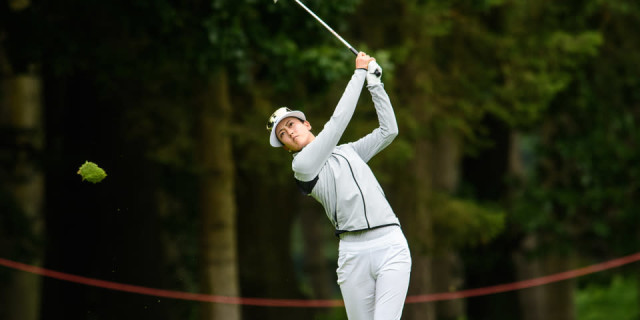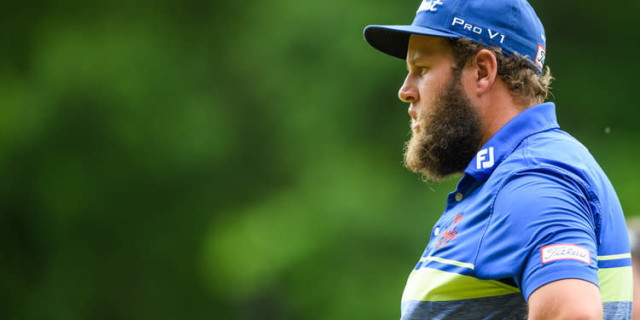
What Can Golf Do to Support Mental Health of Star Players
MICHELLE WIE WEST has called for "more conversations" regarding the mental health of sports personalities in the wake of Naomi Osaka's withdrawal from the French Open. Osaka earned support from high-profile stars across many sports after her decision to pull out of the second Grand Slam event of the tennis season, releasing a statement detailing off-court issues that could keep her sidelined for many weeks. She has made it clear that she has been struggling with her mental health.
The decision of the highest-paid sportswomen in the world to take such drastic action has been described as "incredibly brave" by Wie West, who knows exactly what Osaka is going through, having endured similar problems in the past as one of the most scrutinised golfers in the world at her peak. Remember that she was routinely competing alongside the world’s best male players when barely out of primary school. If anybody knows about the impact media pressure can have, it it Wie West.
"My lows have definitely been well-documented throughout the years, and there have been a lot of tough times," said Wie West ahead of this week's US Women's Open in California, where she will be under less pressure from a playing perspective and is looking forward to scouting in her role as Solheim Cup assistant captain.
Featured Content
"I thought what Naomi did this past week was incredibly brave. I also understand that part of being an athlete is speaking to the media because that's how the tournaments get done is through the media coverage.
"From a player perspective, I am totally understanding. I do get anxiety talking to media like right before it because I know it's the same questions every week. You guys are just doing your job, and I really appreciate that. I really appreciate the media covering women's sports in general.
"Definitely as a player, it gets tough, especially after having a bad round. The last thing you want to do is talk to anyone.
"So it's tough, especially when you're not doing well, or there's a lot more to life than your game. There could be other stuff happening.
"It is sometimes crippling at times, but I'm really proud of athletes taking charge of their mental health and making it a priority. More conversations need to be had about that."

She is not the only high-profile golfer to have struggled. Lexi Thompson’s battles have been well documented, as have those experienced by Chris Kirk and Andrew “Beef” Johnston.
Johnston has spoken openly about the issues he has faced, admitting that he only began to get on top of his mental health problems when he recognised they existed. Encouraged by his partner, Jodie, he sought the help of a psychologist.
He also believes golf's authorities could be doing more to help out players with mental health concerns, a view echoed by Sky Sports commentator and former PGA champion Rich Beem, who revealed he also struggled with expectations at times.
One of the problems with sports such as golf and tennis is that they are individual. Beem said: "Golf is such an individual sport where you can't lean on team-mates. It’s you, and you alone, out there trying to perform at your absolute best, and the onus falls on you when you don't succeed.
"Golfers probably put more pressure on themselves mentally, especially those who didn't grow up in the spotlight. When you have those expectations that other people have put on you, your own expectations might be different sometimes, and that can throw you off.
"I went through some of the same things as Beef. I got to the point where nothing made sense, and I was asking myself why I felt the need to be super-human out there when I wasn't.
"I knew I was fallible at golf, but I also knew that when I was good, I was really good. I took a personality test and I learned so much about myself that I never knew previously, and that helped me immensely to get past some of the anxieties that I had on the golf course.
"But I also think the governing bodies should look at golf and realise there are people out there who struggle. It's a case of how does everyone deal with it, how do they get past it, and awareness alone is a huge first step. I think there should be more money and research in this area.
"This actually goes deeper than going to see a normal sports psychologist, who might be more trained to deal with helping athletes get the most out of their abilities.
"This is different, this is more emotional and sports psychologists may not understand it as deeply as they could, or should. I look at some of the folks that follow the players around, and you do have psychologists working with the players, but what do they actually do? Are they just getting the players focused?
"At the end of the day, there's a lot more going on inside the head of every golfer than you could possibly ever see. This is a separate issue from just being a performance coach."

Johnston added: "I think it would be quite interesting if there could be someone you can go to if you're having a hard time, someone to put their arm around a player if they might not want to go to someone close to them. Maybe they can just go and have a chat and get some things off their chest and start to work out why they're feeling like they are."
Covid-19 has brought matters to a head for many people, including tournament golfers, both male and female. Initially they were locked down, just like the rest of us and many struggled to cope. And things did not get an awful lot better for therm when the action resumed on both sides of the Atlantic because they had to exist in bubbles, living in hotel rooms, unable to socialise. To be fair to the likes of the European Tour, PGA Tour and LPGA Tour, they have recognised that many of their members have struggled with feelings of loneliness and support mechanisms are being put in place.
But there is little doubt that the media also needs to learn some lessons, particularly when it comes to putting leading golfers under the microscope after they have played poorly. Nobody sets out to play this game badly and most golfers don’t know why loss of form occurs. They should be allowed to work things out without the media scrutinising their every move and questioning everything they did. In his prime, Nick Faldo famously had little to do with the press. As a result, he was painted as being aloof and self-centred. But maybe he knew what he was doing all along.
There will be some who criticise Osaka for the stance she has taken. Those who do so should take a step back and try to imagine how they might feel if their every move, their every action, was being questioned by journalists who don’t know her at all.

Be part of the action with a selection of unique golf tournament experiences, from playing in a pro-am with the stars to watching the action at golf’s most illustrious events. Whether it’s the Masters or The Open, The Ryder Cup or WM Phoenix Open, build your own bespoke package with the experts at Golfbreaks.com.
Tags: PGA Tour lpga european tour daily picks









